
Journal Menu
► ▼ Journal Menu-
- Nanomaterials Home
- Aims & Scope
- Editorial Board
- Reviewer Board
- Topical Advisory Panel
- Instructions for Authors
- Special Issues
- Topics
- Sections & Collections
- Article Processing Charge
- Indexing & Archiving
- Editor’s Choice Articles
- Most Cited & Viewed
- Journal Statistics
- Journal History
- Journal Awards
- Society Collaborations
- Conferences
- Editorial Office
Journal Browser
► ▼ Journal BrowserNeed Help?
Announcements
7 June 2024
MDPI Calls for Greater Open Access to Science for Ocean Protection
On UNESCO’s 2024 Oceans Day, MDPI encourages the scientific community to increase the accessibility of ocean research to accelerate ocean conservation.
Basel, Switzerland, June 7, 2024: MDPI, a leading open access (OA) publisher, is proud to announce its active support for World Oceans Day 2024, celebrated under UNESCO’s Ocean Decade framework. MDPI’s CEO, Stefan Tochev hopes that “the latest ocean research can be made freely accessible to help empower scientists and communities at large to save our oceans,” under UNESCO’s Ocean Decade until 2030.
Open Access: A Catalyst for Ocean Action
MDPI’s presence at the UNESCO Ocean Decade Conference 2024 highlights our unwavering commitment to using OA to advance ocean science, support research communities, and promote sustainable ocean management.
"Our involvement in the UNESCO Ocean Decade Conference underscores MDPI's commitment to the underfunded Ocean SDG. By promoting OA to scientific articles and books on SDGs, we aim to inspire critical actions," said Tochev. "Our initiatives, like the World Sustainability Award and Emerging Sustainability Award, further demonstrate our dedication to advancing sustainability.”
Showcasing MDPI’s Contributions to Ocean Research
Over the past three years, MDPI has published 30,000 papers focused on ocean research and related topics. Key MDPI journals contributing to this body of work include:
- Journal of Marine Science and Engineering (4.9k papers)
- Remote Sensing (2.6k papers)
- Sustainability (2k papers)
- International Journal of Molecular Sciences (IJMS) (1.7k papers)
- Marine Drugs (1.5k papers)
- Water (1.5k papers)
These publications highlight MDPI’s contributions to ocean science, reinforcing our role in the broader sustainability agenda by promoting blue innovation and economy.
Additionally, MDPI has launched Oceans, an international, peer-reviewed forum specifically aimed at publishing studies related to all branches of oceanography with an emphasis on the functioning of the ocean and the sustainable use of its resources and ecosystem services.
Affirming MDPI’s Commitment to Ocean Science
MDPI’s commitment to OA is pivotal in addressing critical global challenges, from climate change to ocean sustainability. Our efforts resonate with Outcome 4 of the UNESCO Ocean Decade action roadmap: an accessible ocean with open and equitable access to data, information, technology, and innovation. By aligning with UNESCO’s goals, MDPI continues to contribute to shaping a sustainable future for our oceans, reinforcing our position as a forward-thinking publisher dedicated to environmental stewardship and scientific excellence.
For more information, contact Rui Duarte at rui.duarte@mdpi.com or +41764313242.
About MDPI
A pioneer in scholarly, open access publishing, MDPI has supported academic communities since 1996. MDPI is leading the transition to open science by making more research free and accessible to everyone. Over 3.5 million researchers have entrusted MDPI with publishing their scientific discoveries. MDPI’s editorial process is bolstered by a network of dedicated reviewers, a team of over 6000 professional, well-trained staff members, and an in-house article submission platform that was designed to ensure efficient processes within its 430 fully open access titles.
7 June 2024
Nanomaterials Receives an Increased CiteScore of 8.5

We are pleased to inform you that Nanomaterials (ISSN: 2079-4991) has received a heightened CiteScore of 8.5.
CiteScore provides transparent metrics that enable well-informed publishing strategies, library collection development, and the benchmarking of journal performance. It is now a standard citation metric alongside SNIP and SJR that gives an up-to-date view of a journal’s impact.
The 2023 CiteScore provides an assessment of the scientific influence of journals in the 2020 to 2023 period.
This is a reflection of the excellent performance, support, and dedication of all journal editors, reviewers, authors, and readers.
Nanomaterials’s CiteScore ranks as follows:
- Q1 (44 out of 273) in the “General Chemical Engineering” category;
- Q1 (93 out of 463) in the “General Materials Science” category.
For more journal statistics, please visit https://www.mdpi.com/journal/nanomaterials/stats.
Thank you to everyone who has contributed to the journal.
Nanomaterials Editorial Office
5 June 2024
MDPI Sets a New Benchmark for Publishing Excellence

95% of authors rate MDPI’s publication process as excellent or good, setting a new benchmark in scientific publishing – reveals 2023 Annual Report.
Basel, Switzerland, June 4, 2024: MDPI, the leading open access (OA) publisher, proudly announces the release of its 2023 Annual Report, detailing remarkable achievements and reaffirming its leadership in advancing OA publishing. In 2023, MDPI received 655,065 submissions, of which 285,244 articles were published. The company now commands a 17% market share in gold open access articles, with a median publication time of six weeks.
Stefan Tochev, MDPI's CEO, stated, "As a pioneer in open access publishing, MDPI has long been a game-changer in the scholarly community, serving millions of authors around the world to ensure the latest research is freely available. Reflecting on our incredible journey at MDPI, 2023 has been marked by growth in paper submissions, ambitious projects and initiatives aimed at improving our internal processes and delivering top-notch services to our scientists."
MDPI's 2023 Annual Report highlights several key achievements:
- 17% market share in gold open access articles across all disciplines.
- Record satisfaction rates: 95% of authors, 82% of reviewers, and 85% of guest editors.
- Enhanced editorial standards and feedback processes.
- Increased reach and impact with 54 new MDPI journal inclusions in Scopus, 29 in Web of Science, and 77 in DOAJ.
MDPI’s unwavering commitment to advancing OA has transformed the landscape of scholarly publishing, making high-quality research freely accessible to the global scientific community. The continuous improvement in our editorial standards and feedback processes underscores MDPI’s dedication to ensuring academic integrity and excellence.
Global Reach and Collaboration
MDPI’s global footprint continues to expand, with authors from diverse regions: 37% from Asia/Pacific, 36% from Europe, 15% from the Americas, and 12% from other parts of the world. The company’s fully OA platform attracted nearly 14 million monthly visitors in 2023, reflecting its widespread influence in the scientific community.
Commitment to Partnerships
With over 800 institutional partners, MDPI continues to demonstrate its dedication to providing reliable and collaborative publishing services. The introduction of a transparent flat-fee model highlights MDPI's ongoing efforts to enhance affordability and support to the academic community. For more details read our 2023 Annual Report.
For more information, contact Rui Duarte at rui.duarte@mdpi.com or +41764313242.
About MDPI
A pioneer in scholarly, open access publishing, MDPI has supported academic communities since 1996. MDPI is leading the transition to open science by making more research free and accessible to everyone. Over 3.5 million researchers have entrusted MDPI with publishing their scientific discoveries. MDPI’s editorial process is bolstered by a network of dedicated reviewers, a team of over 6000 professional, well-trained staff members, and an in-house article submission platform that was designed to ensure efficient processes within its 430 fully open access titles.
5 June 2024
Prof. Dr. Zhan’ao Tan Appointed Associate Editor of Section “Solar Energy and Solar Cells” in Nanomaterials

We are pleased to announce that Prof. Dr. Zhan’ao Tan has been appointed Associate Editor of the Section “Solar Energy and Solar Cells” in Nanomaterials (ISSN: 2079-4991). With an extensive background in scientific research and publishing, he will bring a wealth of knowledge and expertise to this role.
Name: Zhan’ao Tan
Affiliation: Beijing Advanced Innovation Center for Soft Matter Science and Engineering, Beijing University of Chemical Technology
Interests: materials and devices for novel thin film solar cells (polymer solar cells and perovskite solar cells); materials and devices for novel light-emitting diodes (quantum dots light-emitting diodes, perovskite light-emitting diodes, and carbon dots light-emitting diodes); materials and devices for energy storage (organic redox flow batteries)
Website: https://en-baicsm.buct.edu.cn/2019/0703/c807a22296/page.htm
The following is a short Q&A with Prof. Dr. Zhan’ao Tan, who shared his vision for the journal with us, as well as his views on the research area:
1. You have conducted a substantial amount of fundamental scientific research in the field of organic optoelectronic materials and devices. What do you think are the imminent bottlenecks that need to be overcome for these technologies to move from laboratory experiments to industrial applications?
Organic optoelectronic materials and devices represent an emerging research field formed at the intersection of disciplines such as chemistry, physics, materials science, and information electronic science. In particular, organic optoelectronic materials constructed with organic conjugated molecules, colloidal quantum dots, and organic–inorganic hybrid perovskites exemplify potential applications in various areas such as novel flat panel displays, solid-state lighting, new energy sources, photochemistry, high-density information transmission, and storage devices. These materials manifest a wide range of application prospects and have garnered close attention from both academic and industrial communities.
For instance, organic light-emitting diodes (OLEDs) exhibit advantages such as active luminescence, rich color rendering, full solid state, and feasibility for flexible displays, which makes them considered as one of the most promising new flat panel display technologies. These OLEDs have gradually been implemented in large-scale production globally. Additionally, organic and perovskite solar cells are low in cost, simple in fabrication, and easily scalable to large-area devices, showcasing significant potential as a renewable energy technology with their photovoltaic conversion efficiencies approaching practical requirements.
However, organic optoelectronic devices still face a number of pending issues concerning materials, efficiency, lifespan, color rendering, large dimensions, flexibility, encapsulation, and production processes, which to a certain extent hinder the industrial development of organic optoelectronic devices. Therefore, future research directions will revolve around materials, devices, and mechanisms, forming a complete R&D chain encompassing “material design synthesis–high-performance device fabrication–device physical mechanism–technological dissemination and application”, aimed at breaking through key technologies such as large-area, flexible, and batch production processes, thus realizing the industrial application of research achievements.
2. With over 250 SCI-indexed papers published in international journals and more than 15,000 citations, how do you maintain innovation and consistently produce high-quality papers in academic research?
In my view, maintaining innovation and continuous high-quality output first requires a comprehensive understanding of the research field. This involves extensively reading the latest literature and classic works in the relevant field, participating in academic seminars, and engaging in discussions with scholars to swiftly grasp the latest research advancements in the field. Secondly, it entails conducting a rational analysis of the current state of research, identifying its shortcomings and limitations, and pinpointing potential research directions and breakthroughs. Finally, it involves proposing new questions or hypotheses based on existing research and designing experiments or research methods to validate or explore these questions or hypotheses. Through the integration of theory and practice, in-depth analysis of research results, and the discovery of new issues, one can present novel insights.
3. What expectations and goals do you have in your role as Associate Editor of the “Solar Energy and Solar Cells” Section?
About two years after serving as a member of the Editorial Board of Nanomaterials, I received an invitation from the journal office to become the Section Associate Editor. Given our positive past collaborations on Special Issues and other journal management tasks, I am pleased to accept this new opportunity. I hope to use my more than 20 years of professional knowledge and experience to participate more in the establishment of journals and Sections, to capture research hot spots and trends in academia, and to ensure the high-quality development of journals.
Nanomaterials is an authoritative academic journal focusing on the field of nanomaterials research. The responsibility and importance of being the Associate Editor of the Section are self-evident. As a Section Associate Editor, I believe that the most important quality is to have keen academic insight, as well as excellent communication and organizational coordination skills. I will continue to learn and practice in this position to promote the development of the journal.
We warmly welcome our Associate Editor, Prof. Dr. Zhan’ao Tan, and wish the journal every success in the future.
5 June 2024
Prof. Dr. Liang Li Appointed Associate Editor of Section “Solar Energy and Solar Cells” in Nanomaterials

We are pleased to announce that Prof. Dr. Liang Li has been appointed Associate Editor of the Section “Solar Energy and Solar Cells” in Nanomaterials (ISSN: 2079-4991). With an extensive background in scientific research and publishing, he will bring a wealth of knowledge and expertise to this role.
Name: Liang Li
Affiliation: School of Physical Science and Technology, Soochow University, Suzhou, P. R. China
Interests: optoelectronic conversion materials and devices such as solar cells, photodetectors, and photoelectrochemical cells; electrochemical batteries, such as Li- and Na- ion batteries; preparation of thin films utilizing atomic layer deposition, magnetron sputtering, etc.
Website: https://ecs.suda.edu.cn/1d/12/c30958a531730/page.htm
The following is a short Q&A with Prof. Dr. Liang Li, who shared his vision for the journal with us, as well as his views on the research area:
1. Could you briefly introduce your current research direction and its main content?
Our team's research primarily focuses on optoelectronic conversion, energy materials, and devices, encompassing specifics such as photoelectric detection, solar (photochemical) cells, and energy storage devices.
2. We noticed that your research experience is quite extensive. What pivotal moments led to your choices of different research institutions and countries?
My research journey has indeed spanned across multiple countries and research institutions. Each pivotal moment has been accompanied by new opportunities and challenges. After obtaining my doctoral degree in 2006 from the Institute of Solid State Physics at the Chinese Academy of Sciences, China, I pursued postdoctoral research at the National University of Singapore, Singapore, mainly due to the complementary nature of the research focus with my doctoral work, which centered on the electrochemical corrosion method for structured nano-array thin film fabrication. Subsequently, I moved to Japan, conducting postdoctoral research at the National Institute of Advanced Industrial Science and Technology, and the National Institute for Materials Science, focusing on the micro/nano-fabrication and physical property characterization of nanostructured photoelectric detection devices. Finally, I concluded my postdoctoral research in Canada at the University of Western Ontario, working on the development of novel energy storage devices based on nanomaterials. Throughout these experiences, I accumulated rich research expertise, particularly gaining exposure to various research fields and scientific cultures in different countries, providing a strong foundation for my independent work as a principal investigator (PI) upon returning to China.
3. Do you have any advice or guiding principles for young scholars aspiring to engage in similar research pursuits and strive for excellence?
Firstly, maintaining a love for research and nurturing curiosity is of utmost importance. The path of research is full of challenges, demanding continuous exploration and innovation. Secondly, it's crucial to build a solid foundation and master the fundamental knowledge and experimental skills relevant to the field. Additionally, engaging in international conferences and academic exchanges broadens one’s horizons and offers access to the latest research trends. Lastly, perseverance and patience are essential. Research requires prolonged dedication and effort, it's not a path for quick victories.
4. What was it like to serve as an Associate Editor for the “Solar Energy and Solar Cells” Section? What are your expectations and goals in this role?
Serving as an Associate Editor has been a valuable experience, providing me with the opportunity to stay abreast of the latest research developments in the field, as well as participate in the paper review and decision-making process. My goal is to help enhance the journal's international influence and drive research advancements in the field of new energy. I look forward to being more involved in the selection and recommendation of outstanding papers, fostering academic exchange and collaboration.
5. As the Associate Editor of the “Solar Energy and Solar Cells” Section, what insights do you have regarding the latest developments and future trends in this field?
In recent years, solar cell technology has rapidly advanced, with perovskite solar cells continuously achieving breakthrough efficiencies, making it a research hotspot. Moving forward, stability and commercial applications will be its primary development focus. Furthermore, the integration of photovoltaic technology with other energy technologies, such as photoelectrocatalysis and energy storage, will also emerge as an important developmental trend.
We warmly welcome our Associate Editor, Prof. Dr. Liang Li, and wish the journal every success in the future.
5 June 2024
Dr. Jihua Chen Appointed Associate Editor of Section “Synthesis, Interfaces and Nanostructures” in Nanomaterials

Name: Dr. Jihua Chen
Email: chenj1@ornl.gov
Home page: https://www.ornl.gov/staff-profile/jihua-chen
Affiliation: The Center for Nanophase Materials Sciences, Oak Ridge National Laboratory, Oak Ridge, United States
Research Interests: Soft Matter Microscopy, Soft Electronics and Ionics, AI for Healthcare and Manufacturing
Dr. Jihua Chen has been a member of the research staff at the Center for Nanophase Materials Sciences at Oak Ridge National Laboratory since 2011. He obtained a Ph.D. in macromolecular science and engineering from the University of Michigan at Ann Arbor, USA, in 2006. He has served on various committees and symposiums for Microscopy and Microanalysis, American Chemical Society, American Physical Society, and Materials Research Society. He is an author or co-author of 170 publications, with an h-index of 58 and over 11k citations on Google Scholar. His research interests include soft electronics and ionics, polymers and organic molecules for energy and medicine and AI for manufacturing and healthcare.
The following is a short Q&A with Dr. Jihua Chen, who shared his vision for the journal with us, as well as his views of the research area and open access publishing:
1. What appealed to you about the journal that made you want to take on the role of its Associate Editor?
Nanomaterials is a cutting-edge open access journal promoting nanoscience and nanomaterial applications. The broader impacts can extend into areas such as optoelectronics, energy storage and harvest, physics, chemistry, biology, medicine, engineering and circular economy, as well as the various approaches that mankind may rely on to tackle technical and societal challenges in the future. I am delighted to be part of this cause.
2. What is your vision for the Section?
Sustainability and efficiency, in my opinion, are among our top priorities in nanoscience, and in the Section “Synthesis, Interfaces and Nanostructures”. The mission of many nanoscience researchers is to achieve sustainability and efficiency in energy and medical applications.
3. What does the future of this field of research look like?
Artificial intelligence (AI) is slowly taking on traditional ways of thinking and operating, including the way that our research is performed. It may not be able to completely replace or fully automate our experiments and analysis any time soon, but personalized AI or customizable AI (tailored for each domain or research area) can greatly increase the productivity of our nanomaterial research toward a future with sustainable energy and efficient healthcare.
4. What do you think of the development of open access in the publishing field?
Open access is an important part of the current and future knowledge-sharing activities including peer-reviewed publications. Personally, I felt the great benefits of being part of the movement. I very much enjoy sharing and receiving knowledge (and wisdom) through open access publications.
We warmly welcome Dr. Jihua Chen as the new Associate Editor and we look forward to him leading Nanomaterials to many more milestones.
4 June 2024
MDPI Insights: The CEO's Letter #12 - First Term as CEO, Tu Youyou Award, Books Report

Welcome to the MDPI Insights: The CEO's Letter.
In these monthly letters, I will showcase two key aspects of our work at MDPI: our commitment to empowering researchers and our determination to facilitating open scientific exchange.
Opening Thoughts

Renewed Term as CEO of MDPI
I released the first CEO Letter at the end of June 2023, reflecting on my first month as CEO. Looking back at the first release, I’m pleased to see a marked consistency of content – from talking about open access (OA) and highlighting the great work being done at MDPI, to bringing together the science community with our conferences and building relations with our editorial board members and our industry as a whole.
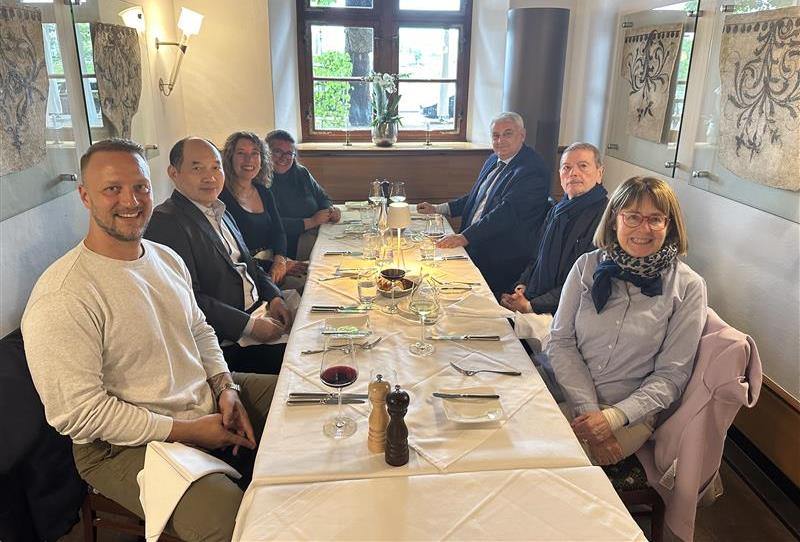
For example, in the first letter, I highlighted our meeting with Dr. Eric O. Freed, the founding and current Editor-in-Chief (EiC) of our journal Viruses. Meeting with Eric is a pleasure, as he has a strong commitment and clear vision for the journal.
On 21 May, 2024 we met with EiC Prof. Dr. Antonino Carbone, and Section EiC Prof. Dr. Alberto Signore (pictured on the left), of our journal Hemato (tracked for Impact Factor, and indexed in Scopus), showing our continued and active collaboration with our chief editors to develop the visions for the journal. Over the course of the day, we gathered feedback and gained an understanding of the journal's expectations and focus on strategic growth.
Reflections on my first year as CEO: achievements and initiatives
During my first year as CEO, there have been many remarkable moments, including a strong focus on bringing people together, focusing on company communications and performance.
According to a recent study of 3,400 people across 10 countries, “Managers impact employees’ mental health (69%) more than doctors (51%) or therapists (41%) — and even the same as a partner (69%).” This is an important topic for me, and perhaps that’s why I place a high value on management culture due to its tangible impact on people’s lives.
When I joined MDPI, I created a weekly meet-up for the Corporate Marketing department and their team leads. On the final Thursday of every month, we hold a Global Marketing meet-up to present projects, share knowledge, and conduct training. For years, I’ve maintained the tradition of ending each of our monthly global calls with a group photo to boost morale, motivation, and productivity, and to finish on a positive note.
In keeping with this, when I stepped into the role of CEO, I launched a bi-weekly management meeting, chairing over 20 MDPI Management Team meetings in my first year. These sessions provide an opportunity for managers to present their team’s work, focusing on their achievements and the challenges they face, while at the same time creating space for sharing knowledge.
“I firmly believe that OA is the future of publishing”
I co-organized and co-led the 2023 MDPI Strategy Management meeting this past October, from which we established an Executive Task Force that meets monthly to prioritize projects aimed at building MDPI into the world’s most trusted publisher. To achieve our goals, we as managers need to maintain collaborative communication and connect to the bigger picture.
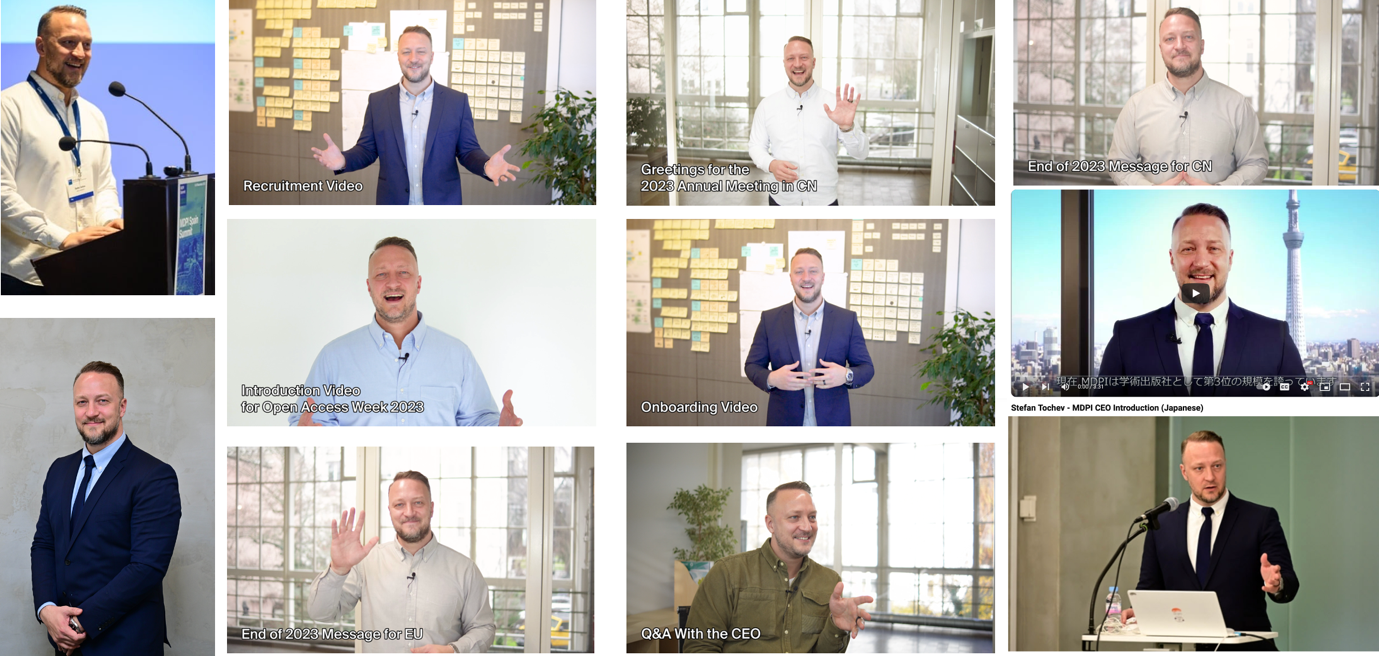
As CEO, I focused on leadership communication by publishing 12 CEO Letters, one for each month of my tenure, to share more about MDPI news and achievements. I also produced ten videos to help further communicate our message.
I was happy to attend eight publishing and conference events, including STM in Frankfurt and Washington, APE, and R2R, and facilitate critical company meetings with Elsevier, Web of Science, ResearchGate, DOAJ, and others. It was a pleasure to meet and have discussions with key organizations and governing bodies such as CAS in China and ANVUR in Italy.
The best part was the opportunity to visit seven MDPI offices across Europe and Asia-Pacific, meeting with local managers and colleagues and supporting them in person. As part of this, I conducted training sessions while continuing to lead the Corporate Marketing department.
Looking ahead
My goal for my second year as CEO is to continue building on the initiatives from the past, including leadership communications, public relations, educational marketing, and company culture, while representing MDPI to the best of my ability. Additionally, I have a few new projects I hope to launch that I believe will be valuable to MDPI and the industry at large.
I firmly believe that OA is the future of publishing, and I am grateful to be in a position to advocate for this belief as part of MDPI, the world's leading open access publisher.
Thank you to our staff and industry friends for your genuine support in this role.
Impactful Research

Nominations Open for the Prestigious Tu Youyou Award 2024
I am pleased to share that MDPI has opened nominations for the 2024 Tu Youyou Award, a prestigious recognition established in honour of Professor Tu Youyou, Nobel Laureate, whose work has significantly transformed the global fight against malaria.
The Tu Youyou Award offers CHF 100,000
In 2015, Professor Tu Youyou was awarded the Nobel Prize in Physiology or Medicine for her discovery of artemisinin, significantly reducing mortality rates from malaria and shaping global health policies. Artemisinin-based combination therapies (ACTs) are now the standard treatment endorsed by the World Health Organization (WHO), saving countless lives, especially in regions heavily burdened by malaria.
MDPI Special Issue
To mark Professor Tu’s 80th birthday in 2009, MDPI’s journal Molecules issued a Special Issue focusing on her contributions to medical research. Recognizing her continuous contribution, MDPI created the Tu Youyou Award in 2016 to honour outstanding achievements in natural products and medicinal chemistry.
The deadline for nominations is 31 December 2024
Nominations are open to scientists excelling in natural products and medicinal chemistry. Eligible nominators include academic institutes, universities, and societies. The deadline for nominations is 31 December 2024, with the winners to be announced on 30 April 2025. The Tu Youyou Award offers CHF 100,000, split equally among the winners.
MDPI encourages the academic community to nominate individuals who have demonstrated excellence and innovation in line with Professor Tu’s legacy. This award not only honours individual achievement but also encourages further scientific exploration and discovery in critical areas of medicine.
This award embodies our deep commitment to groundbreaking research that drives societal progress and celebrates the legacy of one of the greatest medical innovators of our time.
Inside MDPI

2023 MDPI Books Report
In past CEO letters, I have highlighted our publishing process and the impactful peer-reviewed articles that represent the core output of scholarly publishing. However, scholarly books are another pillar of publishing that MDPI also services, which our core audience may not be fully aware of. In this section, I highlight the 2023 MDPI Books report, released by our MDPI Books team in May 2024.
Download the 2023 MDPI Books Report
In the report, you will find a summary of MDPI Books’ 10th anniversary, the books indexed in the Web of Science Book Citation Index, our market outreach, and our outlook for 2024.
MDPI Books celebrated its 10th anniversary in 2023
MDPI Books published its first OA Reprint, “From the Renaissance to the Modern World,” in 2013. Over the past ten years, MDPI Books has seen a significant increase in both the volume and nature of published Reprints. As of December 2023, our catalogue includes a total of 7,369 Reprints, with 1,811 of them added in 2023 alone. MDPI Books includes monographs, book series, edited books and reprints of special issues and topical collections, among other book types.

We’re also celebrating the 10-year MDPI anniversary of Laura Wagner, Head of MDPI Books.
Laura Wagner (Head of Books Division)
Laura holds a Bachelor’s degree in Art History and History from the University of Basel. After her studies, she started her career at an art gallery in Basel.
Since joining MDPI in 2014, Laura has held several roles within the company. This included editorial work, development of reprint and book services, and the temporary management of the journal Arts.
Currently Laura holds the role of Head of Books Division and is in charge of the development and strategic direction of MDPI Books.
MDPI Books indexed in Web of Science Book Citation Index
Another milestone in 2023 was the indexing of four book titles in the Web of Science Book Citation Index. The indexing of our open access books is crucial for their reach and accessibility, ensuring higher visibility within the open science community.

- Self-Representation in an Expanded Field: From Self-Portraiture to Selfie, Contemporary Art in the Social Media Age by editor Ace Lehner
- Towards Socially Integrative Cities: Perspectives on Urban Sustainability in Europe and China by editors Bernhard Müller, Jian Liu, Jianming Cai, Paulina Schiappacasse, Hans-Martin Neumann, and Baojun Yang
- Transitioning to Gender Equality by editors Christa Binswanger and Andrea Zimmermann
- Under Construction: Performing Critical Identity by editor Marie-Anne Kohl
If you would like to learn more about MDPI Books, please visit: www.mdpi.com/books
If you are thinking of writing or editing a book, you can submit your proposal at www.mdpi.com/books/publish-with-us, or email us at books@mdpi.com.
Coming Together for Science

Polymers 2024 – Polymers for a Safe and Sustainable Future
Our conference team successfully managed the Polymers 2024 – Polymers for a Safe and Sustainable Future international conference which took place from 28–31 May 2024 in Athens, Greece. The conference was chaired by Prof. Dr. Dimitrios Bikiaris and Prof. Dr. Konstantinos Triantafyllidis from the Aristotle University of Thessaloniki, Greece, and Dr. Ioanna Deligkiozi from AXIA Innovation, Germany. In total, the conference had 259 accepted abstracts and over 300 attendees from 22 different countries.
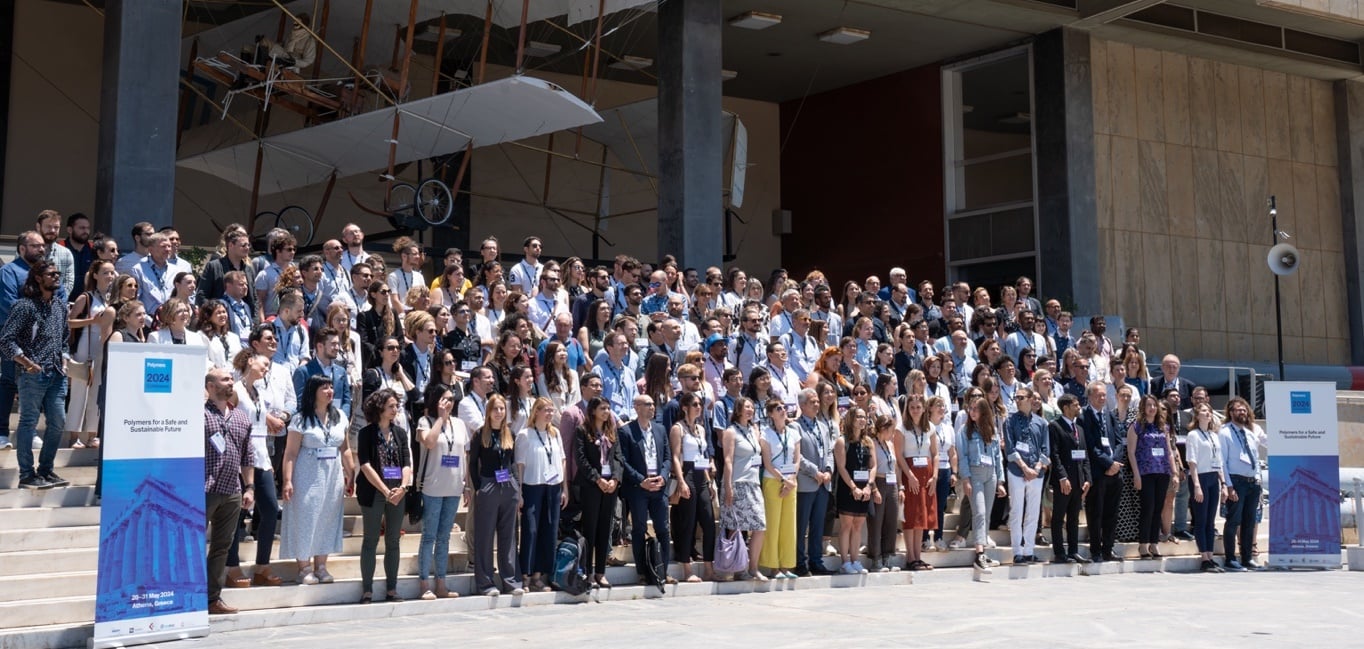
The conference featured three keynote speakers and 12 invited speakers, including esteemed scholars from Europe, Asia, Africa, and Canada. It included 60 selected talks and 189 posters, chosen by the 24 members of the Scientific Committee along with the three Conference Chairs. The event explored the latest scientific advancements and innovations in polymer science, focusing on creating safe, sustainable, and environmentally friendly materials. Emphasizing green polymer chemistry and the use of bioresources, the conference promoted the synthesis of biobased and biodegradable polymers.
The conference featured esteemed scholars from Europe, Asia, Africa, and Canada
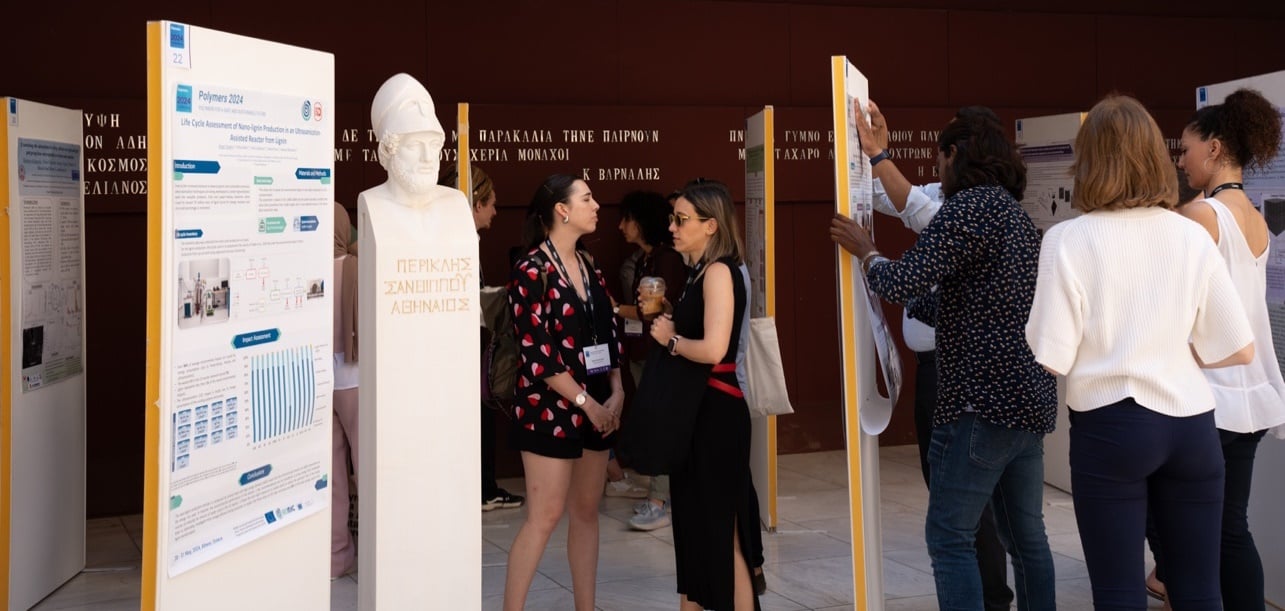
Conference awards
The conference also presented three awards: two sponsored by the journal Polymers – The Best Poster Award (€500) and the Best Oral Presentation Award (€600) – and one sponsored by Ossila, the Best Student Poster Award (€500).
Thank you to our 16 sponsors, three partnering societies (Hellenic Polymer Society, European Polymer Federation, and North American Thermal Analysis Society [NATAS]) and eight media partners.
Upcoming in-person event
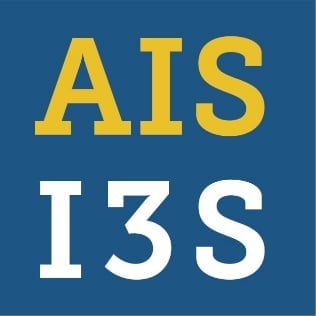
1–4 August, 2024
The 1st International Conference on AI Sensors & The 10th International Symposium on Sensor Science
Location: Singapore
The AI Sensors 2024 Conference will unite innovators and experts in the realms of sensors, sensing technology, and artificial intelligence.
Find more upcoming MDPI events here.
Closing Thoughts
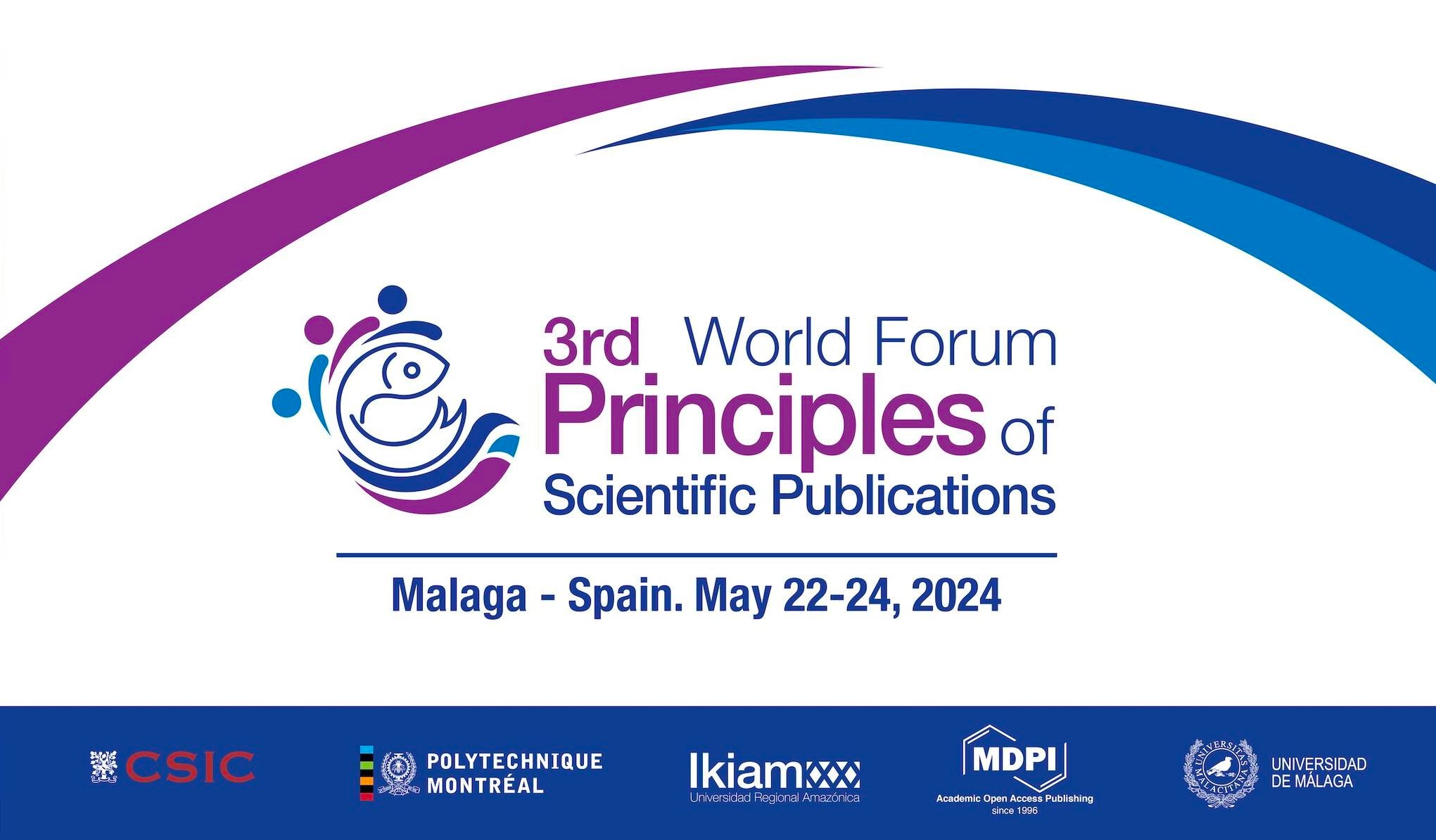
3rd World Forum Principles of Scientific Publications
I’m pleased to share that MDPI sponsored and attended the 3rd World Forum on Principles of Scientific Publications, which took place from 22–24 May in Malaga, Spain. The event brought together academic professionals and leading researchers to discuss critical topics in the realm of publishing and research. Presentation topics included Open Science, AI in Publishing, Predatory Journals, Fake Publications, Challenges for Non-native English Speakers, and more.
“It was great to see strong support from MDPI authors in the audience”
MDPI presentations
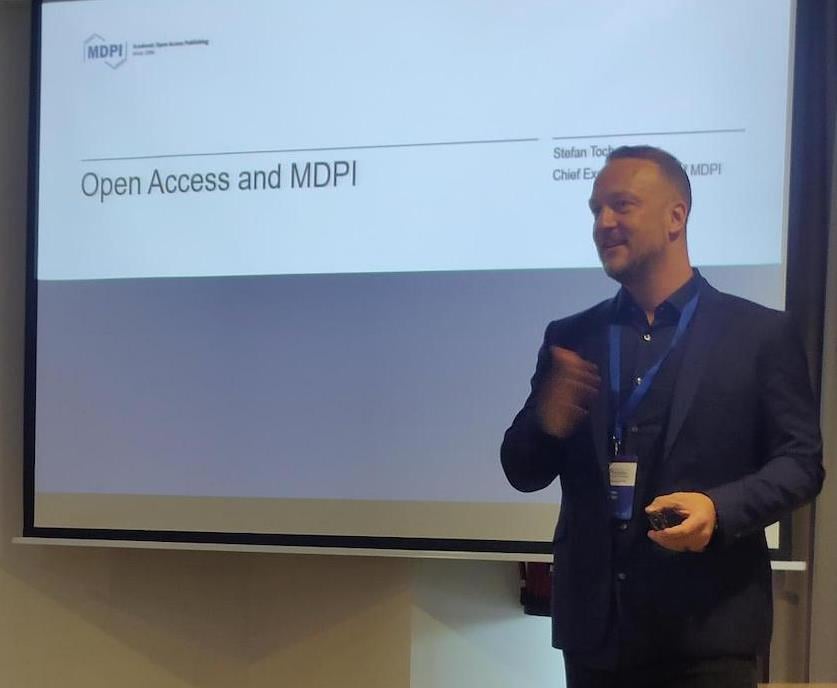
Stefan Tochev (CEO, MDPI) presenting at the 3rd World Forum Principles of Scientific Publications
I had the privilege of attending and presenting at the event, along with my colleague Dr. Enric Sayas (Business Analyst, MDPI) from our Barcelona office, who explored the ethical concerns and opportunities brought by AI in publishing.
I took the opportunity to present on Open Science, the benefits of Open Access, and MDPI’s performance, operations, and investment in ethics. Special thanks to Evan Escamilla (Project Manager, MDPI Books) and Facundo Santomé (Sr. Marketing Manager, MDPI) who also joined the conference.
It was great to see strong support from MDPI authors in the audience who shared their positive experiences publishing with us. Their story reflects the experience of the vast majority of authors who choose to work with MDPI.
We also encountered some conservative views on OA, which created an opportunity for open discussion aimed at addressing concerns about OA and MDPI. Engaging in such discussions is important, as scepticism sometimes arises from misinformation or from a misunderstanding of who we are and how we operate. When we engage in open and honest discussion, we tend to see people getting a better understanding of MDPI, which helps address any misconceptions they may have had.
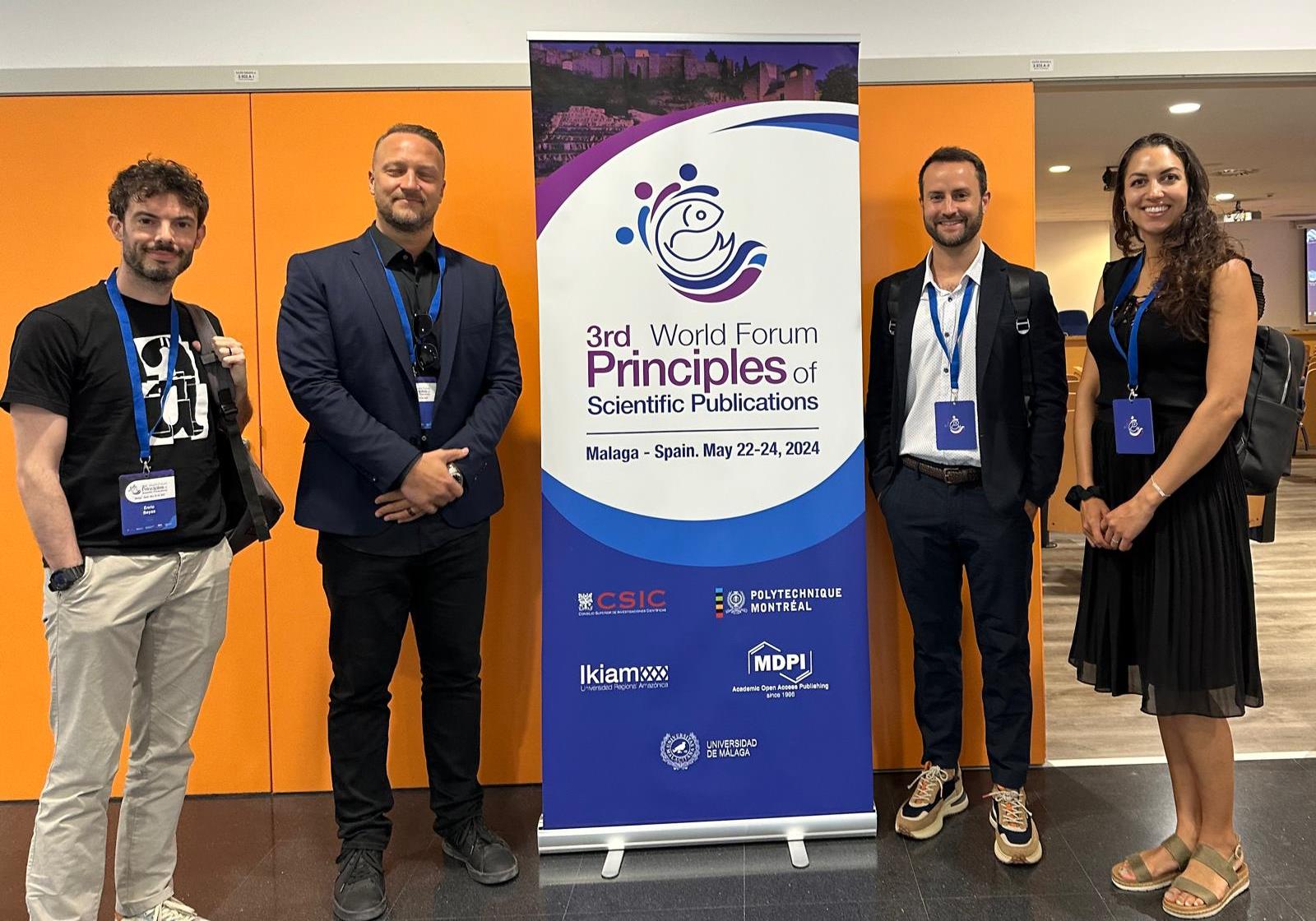
Left to right: Dr. Enric Sayas (Business Analyst, MDPI), Stefan Tochev (CEO, MDPI), Facundo Santomé (Sr. Marketing Manager, MDPI), and Evan Escamilla (Project Manager, MDPI Books) at 3rd World Forum Principles of Scientific Publications
Chief Executive Officer
MDPI AG
3 June 2024
Meet Us at the 50th World Polymer Congress, 1–4 July 2024, Coventry, UK

The 50th World Polymer Congress will be held from 1 to 4 July 2024 in Coventry, UK. The conference is being organized by the University of Warwick.
The areas of focus for the above conference include the following:
- Bio-based polymer chemistry;
- European polymer journals;
- Polymers at surfaces and interfaces;
- Polymers for data science;
- Dynamic polymer networks;
- Block copolymers and self-assembly;
- Functional and sustainable polymers & elastomers.
The following MDPI journals will be represented at the conference:
- Materials;
- Polymers;
- Molecules;
- Membranes;
- Gels;
- Nanomaterials.
If you are planning to attend the above conference, please feel free to start an online conversation with us. Our delegates look forward to meeting you and answering any questions that you may have. Our booth number is awaiting confirmation and will be updated as soon as possible. For more information about the conference, please visit the following link: https://www.macro2024.org/.
23 May 2024
Transfer Service in MDPI
We are pleased to announce MDPI’s Transfer Service.
This service provides a convenient method of transferring your manuscript file, along with any reviewer comments, to another journal within our publishing portfolio.
We are committed to helping authors find the right home for their research, and we will provide authors with guidance and technical support through all stages of the transfer process. Authors will be able to choose to transfer in the following two situations:
1. Select alternative journals on submission.
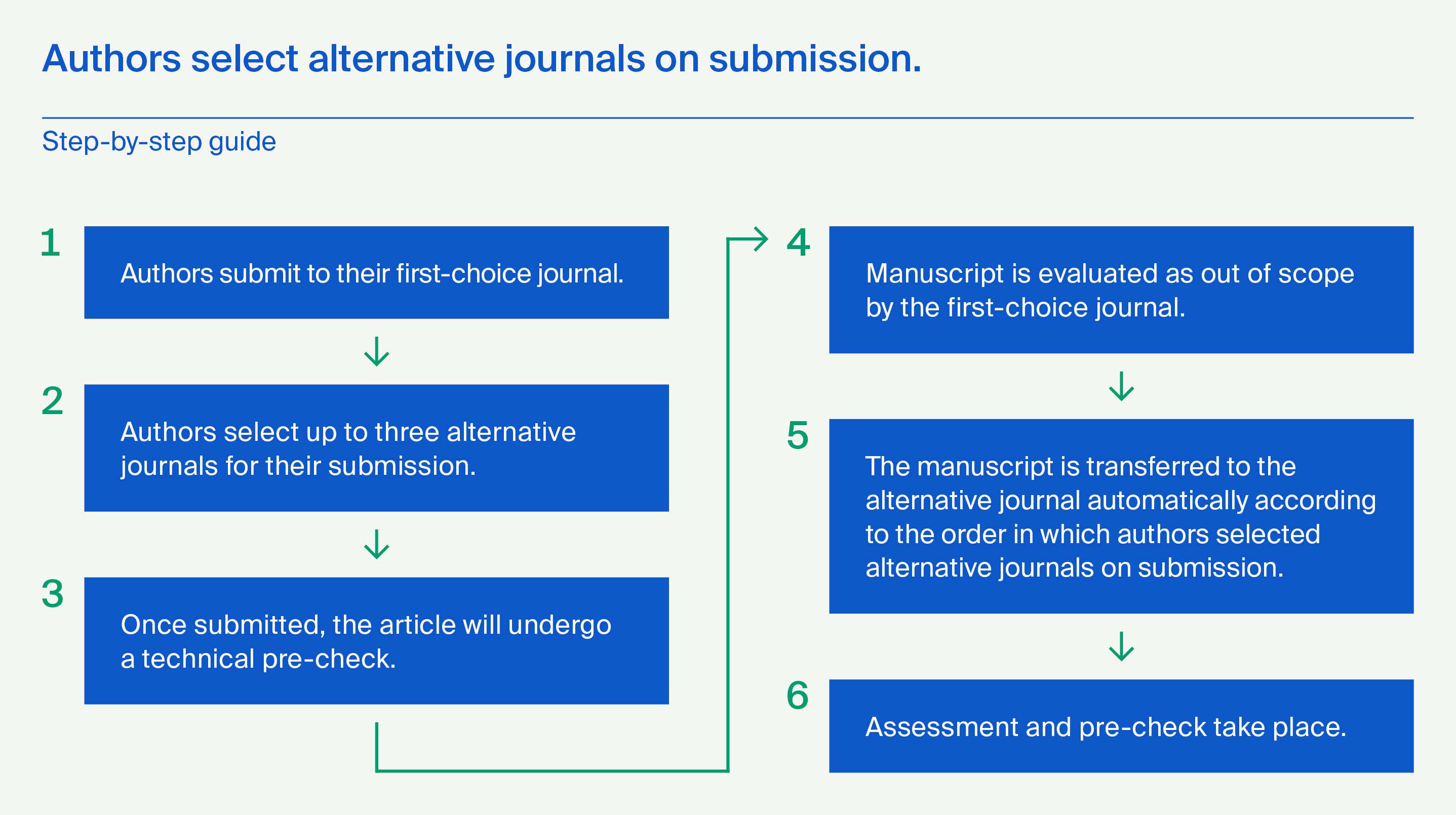
2. Authors are encouraged to transfer manuscripts to other MDPI journals.
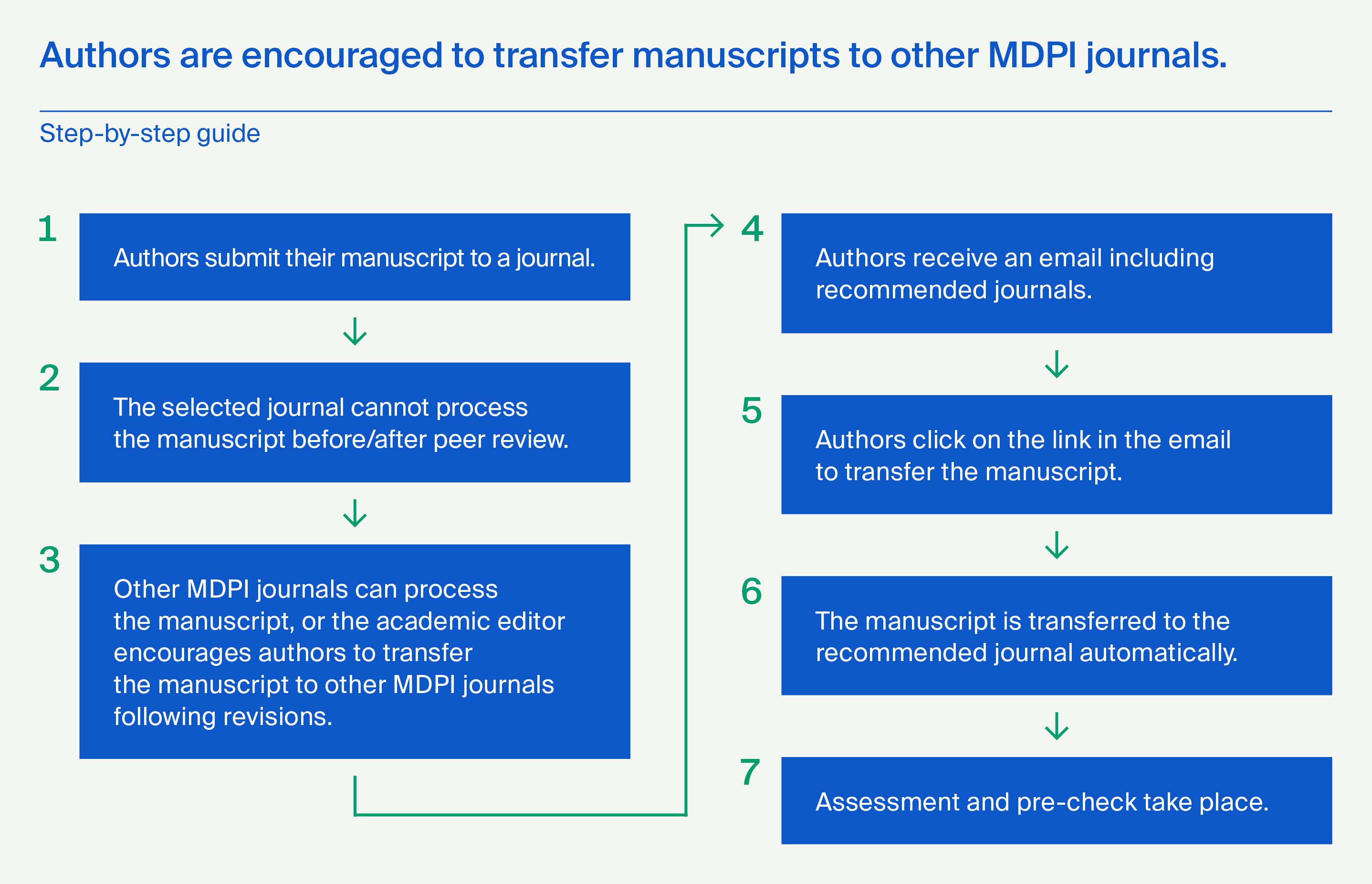
More details about the Transfer Service can be found at the following link:
21 May 2024
Dr. Li Cao Appointed Section Editor-in-Chief of Section “Nanocomposite Materials” in Nanomaterials
We are pleased to announce that Dr. Li Cao has been appointed Editor-in-Chief of the Section “Nanocomposite Materials” in Nanomaterials (ISSN: 2079-4991).
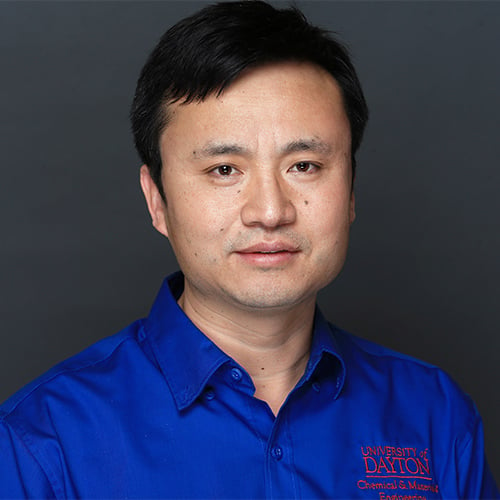
Name: Dr. Li Cao
Affiliation: School of Engineering: Department of Chemical and Materials Engineering, Dayton, Ohio, USA
Interests: The synthesis, characterization, and application of nanomaterials and nanocomposites; development of advanced nanocomposites using 3D printing technologies
Website: https://udayton.edu/directory/engineering/chemical_and_materials/cao-li.php
The following is a short Q&A with Dr. Li Cao, who shared his vision for the journal with us, as well as his views of the research area and open access publishing:
1. What do you think of the development of open access in the publishing field?
In the current world, many people still face difficulties in easily accessing scientific resources to advance their knowledge, techniques, and research. Open access is a great approach as it can provide equal opportunities for everyone to freely access scientific information and knowledge. There is no doubt that open access plays an important role in the advancement of science.
2. What appealed to you about the journal that made you want to take on the role as its Section Editor-in-Chief of “Nanocomposite Materials”?
I have worked on nanomaterial- and composite-related research for many years. Serving as the Section Editor-in-Chief will allow me to make significant contributions to the “Nanocomposite Materials” Section.
3. What is your vision for this Section?
Our Section broadly covers various topics related to the research and applications of nanocomposite materials. It has become a significant platform for researchers and scientists to share their innovative research in this field. It will become a high-impact literature resource for everyone to read the latest developments in nanocomposite materials and applications.
4. What does the future of this field of research look like?
The future of this field of research is very promising due to the rapid development of nanocomposite materials for various applications. Benefiting from the development of technologies and timely dissemination of scientific information, scientists and researchers will continue making innovative progress in nanocomposite materials for diverse applications compared to the past.
We wish Dr. Li Cao every success in his new position, and we look forward to his contributions to the journal.




